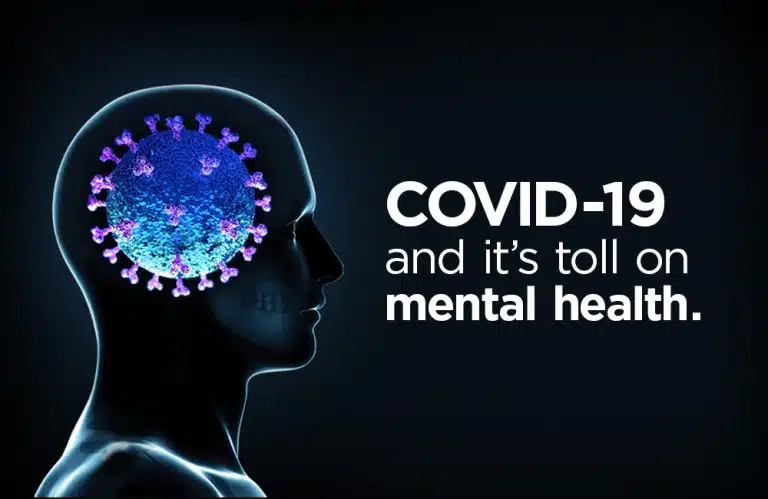The psychological effects of the Covid-19 pandemic and how to reduce these effects
The Novel Coronavirus Disease 2019 (Covid-19) is undoubtedly a pandemic that affects the mental health and well-being of humans globally. The World Health Organization (WHO) declared the new Covid-19 a global pandemic in March 2020. Covid-19 was first reported in December 2019 in Wuhan China, following an outbreak of the Virus in the Hunan seafood market in Wuhan City, causing an increase in morbidity and mortality rates across the globe. Covid-19 is transmissible from human to human through inhalation of infected respiratory droplets. These virus-infected droplets or aerosols are mainly spread through coughing and sneezing within persons of close contact. However, transmission via other means is not to be ruled out, for example, contact with infected surfaces, being in contact with objects used on infected persons e.g., examination bed, thermometer, or stethoscope. The incubation period and display of Covid-19 symptoms vary from five to fourteen days, hence the use of approved Covid-19 personal protective equipment, and regular testing should be done to significantly reduce the spread of the virus.
Although previous research has shown a significant increase in psychological issues such as anxiety, depression, low mood, substance misuse, elevated suicidal ideation, and post-traumatic stress disorder (PTSD) following the occurrence of natural disasters and major economic crises. This pattern is quite like the outbreak of the Covid-19 Pandemic following government-imposed lockdown measures to curb the spread of Covid-19. Mental health and well-being outcomes of government-imposed lockdown, isolation and similar prevention mechanisms have shown a high prevalence of sleeping disorders, panic attacks, depression, anxiety, stress, reduced confidence, social withdrawal, substance misuse, increased feelings of loneliness, isolation, eating disorders, obsessive-compulsive disorder etc.
Other stressors such as prolonged quarantine, the frustration of being more vulnerable to Covid-19, fear of infection, inadequate supplies, loss of income, stigmatisation due to infection or hospitalisation, loss of loved ones due to Covid-19, confusion, anger, loss of hope with regards to treatment outcomes with underlying ailments, lack of social support, limited access to health care etc., have resulted in prolonged post-traumatic stress disorder (PTSD) in people. Individuals who had psychological difficulties before the pandemic had an increased level of these psychological difficulties, and this requires further understanding and intervention of these mental health issues during this Covid-19 pandemic.

Helpful coping strategies
Self-reassurance which is an adaptive emotion regular process that works by dwelling on the positives, distinguishing between realistic and unrealistic self-doubts and clarifying values is a key tool in improving post-traumatic disorder due to Covid-19.
Socialisation, and staying connected with friends, loved ones and family members during quarantine can help reduce social isolation.
It is also advised to be mindful when seeking information about Covid-19, it is therefore recommended to seek information from authorised news agencies to avoid false reports and contagious negativity.
Other relaxation activities such as aromatherapy, listening to music, dance and art therapies, are known to help improve the feeling of being relaxed and happy. Engaging in positive distractions such as sports, movies, training, cooking, and community service all improve positive well-being. It has been proven that achieving well-being through lifestyle changes such as aerobic exercises and maintaining a healthy diet pattern has shown stronger positive effects on well-being hence, it is highly recommended.
Psychological therapies
Various talking therapies are relevant in tackling Covid-19 induced psychological stressors. These therapies can be assessed through the NHS, and they include:
Cognitive behaviour therapy has been demonstrated to be effective for several mental health problems such as obsessive-compulsive disorder, depression, anxiety, post-traumatic stress disorder, eating disorder, and substance misuse. It works by identifying emotional responses to situations, identifying patterns of negative thoughts, and challenging these negative thoughts and behaviours.
Counselling is a type of talking therapy that involves talking to a counsellor in confidence and this helps with depression which could be due to a recent life crisis such as the loss of a loved one. Counselling sessions can be tailored according to everyone’s level of therapy need, being mild to moderate.
Behavioural activation therapy is targeted toward people with depression and is aimed at increasing positive well-being in life. this could be done in groups or in one-to-one sessions with a therapist.
Eye movement desensitisation and reprocessing (EMDR) was developed to help people who are dealing with post-traumatic stress disorder (PTSD). EMDR assists the brain to reprocess traumatic events so that these negative thoughts or events have a reduced impact.
Mindfulness-based cognitive therapy (MCBT) is the use of mindfulness-based techniques such as yoga, meditation or breathing exercises coupled with CBT directed towards managing thoughts and feelings. MBCT is focused on preventing recurring depression, anxiety, and stress.
Further Suggestions
Other ways to help mitigate the psychological impacts of the Covid-19 pandemic include.
- Employing more culturally diversified mental health practitioners targeted at hard-to-reach populations to provide immediate psychological support, also facilitating easy access to mental health support by encouraging the use of hotlines and online consultation to reduce the waiting list.
- Vulnerable groups in the population should be prioritised when providing intervention e.g., people with pre-existing medical or psychological illnesses.
- Timely communication of information associated with Covid-19 e.g., update on preventive measures, progress effect of Covid-19 vaccine, providing reassurance, will help prevent panic and disregard dissemination of false information.
- Increased funding and financial support such as guarantees loans, providing housing support, access to psychiatric aid, providing food and basic healthcare support will go a long way in reducing Covid-19 induced hardships. This government intervention in the form of financial aid has been deemed effective in the times of recession in Japan during the 2008 economic depression, hence will be strongly recommended for dealing with hardships due to Covid-19.

